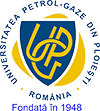Erasmus+ Incoming Student Guide: Before You Come
Pre-Departure Essentials:
- Official Acceptance: Once you receive official acceptance from your host university, confirm your participation with your home university’s Erasmus+ office.
- Visa and Permits: Research visa requirements for your host country. Apply well in advance, especially if the process is complex.
- Accommodation: Explore housing options offered by your host university or private accommodation platforms. Secure your place early, especially in popular cities.
- Financial Planning: Budget for living expenses, travel costs, and potential health insurance requirements. Consider scholarships or grants offered by your home university or Erasmus+.
- Health Insurance: Ensure you have adequate health insurance coverage throughout your exchange period. Your home university or Erasmus+ program might offer guidance.
- Flight and Travel Arrangements: Book flights well in advance to secure better deals. Research local transportation options in your host city.
- Language Learning: Even if courses are in English, brush up on the local language for everyday interactions and cultural immersion.
Documentation and Paperwork:
- Learning Agreement: This document outlines the courses you’ll take at your host university. Work with your home university’s Erasmus+ coordinator and the host university to finalize it.
- Transcript: Obtain official transcripts from your home university to fulfill enrollment requirements at your host university.
- Proof of Health Insurance: Provide documentation of your valid health insurance coverage.
- Passport and Visa: Ensure your passport is valid for the duration of your stay and obtain the necessary visa approval before departure.
Additional Considerations:
- Opening a Bank Account: Consider opening a bank account in your host country for easier access to funds.
- Registering with Your Home Embassy: Inform your home embassy about your exchange program and duration of stay in the host country.
- Researching Local Customs: Learn about cultural norms, etiquette, and traditions in your host country to adapt smoothly.
- Packing: Research the climate and typical attire in your host city to pack appropriately. Ensure you have all necessary documents and essential items.
Connecting with Others:
- Contact Your Host University: Get in touch with the international student office or Erasmus+ coordinator for guidance on arrival procedures, academic support, and social events.
- Join Online Forums and Groups: Connect with other incoming Erasmus+ students in your host city or program online.
- Connect with Outgoing Students: Talk to students from your home university who have participated in Erasmus+ exchanges. They can share valuable insights and tips.

